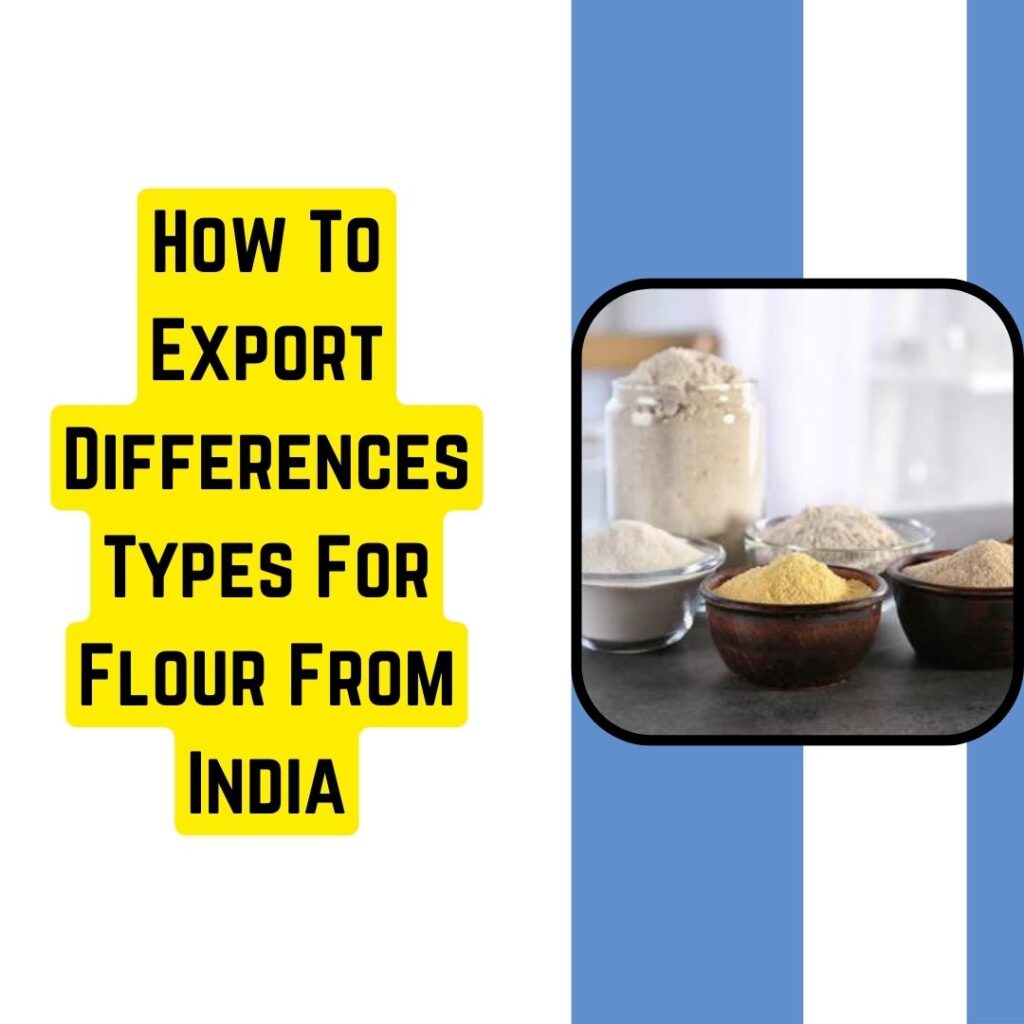Market Research and Product Selection: Conduct market research to identify the demand for different types of flour in your target export markets. Common types of flour exported from India include wheat flour, rice flour, gram flour (besan), maize flour (corn flour), and millet flour (jowar, bajra). Choose the types of flour that have a demand in your target market.
Quality Standards and Regulations: Ensure that the flour you intend to export meets the quality standards and regulations of both India and the importing country. Quality standards may include parameters such as purity, moisture content, texture, and absence of contaminants. Familiarize yourself with international standards such as ISO, HACCP, and FSSAI (Food Safety and Standards Authority of India).
Supplier Selection: Identify reliable suppliers or manufacturers of the chosen types of flour in India. Conduct due diligence to ensure that the suppliers have necessary certifications, such as FSSAI certification for food safety compliance.
Documentation and Licensing: Obtain the necessary licenses and permits required for exporting food products from India. This may include an Import-Export Code (IEC), registration with relevant export promotion councils, and compliance with phytosanitary and sanitary regulations. Prepare documentation such as invoices, packing lists, certificates of origin, and health certificates.
Packaging and Labeling: Ensure that the flour is packaged appropriately for export, considering factors such as shelf life, transportation, and protection against contamination. Label the packages with relevant information such as product name, batch number, manufacturing date, expiry date, net weight, nutritional information, and ingredients list. Labeling should comply with the regulations of the importing country.
Logistics and Transportation: Arrange for logistics and transportation of the flour from the manufacturing facility to the port of shipment. Choose reliable freight forwarders or shipping companies with experience in handling food products. Consider factors such as transit time, temperature control (if required), and insurance coverage.
Customs Clearance and Export Procedures: Complete customs clearance procedures for exporting the flour from India. Submit required documentation to customs authorities and comply with export procedures, including customs declarations, inspection, and payment of duties and taxes.
Market Entry and Distribution: Develop a market entry strategy for introducing your flour products into the target market. This may involve identifying distributors, retailers, or importers in the target country and establishing partnerships or distribution agreements. Consider factors such as pricing, promotion, and market positioning to effectively compete in the market.
After-Sales Support and Compliance: Provide after-sales support to customers and ensure ongoing compliance with regulatory requirements in the importing country. Stay updated on changes in regulations, market trends, and consumer preferences to adapt your export strategy accordingly.
Build Relationships and Feedback: Build strong relationships with your customers and seek feedback to continuously improve your product quality, packaging, and service. Positive customer experiences and word-of-mouth recommendations can help expand your export business in the long run.
By following these steps and paying attention to quality, regulations, and market requirements, you can successfully export different types of flour from India to international markets.



